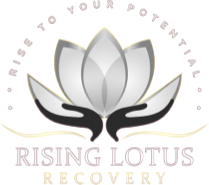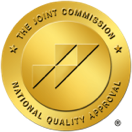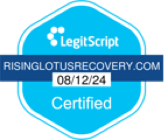Facing a DUI or drug charge can feel overwhelming. However, there are ways to take back control and show the court you’re serious about change. The legal system can feel confusing and intimidating, but you can begin turning things around. One of the most powerful ways to show you’re serious about recovery is to voluntarily enter a rehab program.
Entering rehab—especially voluntarily—can help your DUI or drug charge case. It shows the court you’re committed to recovery and taking responsibility. Taking this step demonstrates accountability and a willingness to address the root causes of your actions, which can positively influence the outcome of your case.
What Happens After a DUI or Drug Charge in California?
In California, a DUI or drug charge can lead to significant penalties. Fines, a suspended license, probation, and even jail time—all of these and more are on the table. The specific outcome for a case depends on:
- Prior offenses
- The severity of the accident
- Whether anyone was harmed
For non-violent offenses, the state offers special programs that focus on treatment rather than punishment. Due to California’s Penal Code § 1000, eligible people can complete a rehabilitation program in place of criminal prosecution.
Factors Involved with the Penalty for a DUI
While some people qualify for this exception, it doesn’t broadly apply to every case. Judges and prosecutors play a significant role in determining the outcome of your case.
Courts want to see that a person is taking action to address their substance use. If you’re proactive, it often affects your case going forward. Voluntarily entering rehab and taking educational classes offered by courts shows that you’re committed to your recovery—not just looking for a legal shortcut.
How Rehab Can Affect the Outcome of Your Case
Courts generally look favorably on defendants who take initiative. Enrolling in a voluntary rehab program before your court date can be an incredible step. It shows you’re ready to take ownership of your actions and work toward an addiction-free future.
In many cases, lawyers can use your participation in rehab to advocate for alternative outcomes to the case. It could lead to reduced sentences, diversion programs, or even probation. If you’re currently in jail waiting for trial, an attorney may even be able to request that you be released into a program like ours rather than remaining behind bars.
Judges often see rehab as a more productive option than incarceration. However, your own willingness to seek help matters. Choosing rehab voluntarily tells the court that you’re not waiting to be told what to do, and that you’re already taking the first steps.
When to Enter Rehab: Timing Matters
The timing of your decision can impact how much it helps your legal situation. Entering rehab and court programs before sentencing or trial is generally more beneficial. If you wait for it to become a court order, it may look like you’re trying to be reactive rather than proactive.
Remember—judges look closely at your attitude and actions. If you wait until you’re told to go to rehab, it can look like you’re doing the bare minimum. But if you’re already in treatment, it shows maturity and personal responsibility. The sooner you start, the more it says about your mindset.
What Kind of Rehab Program Do Courts Accept?
Courts typically require individuals to attend licensed, accredited programs that provide clear documentation. This includes everything from inpatient programs to outpatient options.
Some of the types of programs courts often accept include:
- Inpatient programs, where you live onsite and follow a structured daily routine
- Outpatient rehab, with regular attendance, therapy sessions, and accountability checks
- Detox programs, if medically necessary, which often serve as the first step in treatment
- Dual diagnosis rehab, which supports those with both addiction and mental health needs.
It’s also helpful if your program has experience working with courts and attorneys. This kind of coordination can help make your case stronger.

Choosing a Rehab That Supports Long-Term Change
A good rehab program isn’t just about checking a box for the court. It’s about helping you build tools for an addiction-free future. That includes learning new routines, building community, and practicing healthy coping skills. Your recovery journey doesn’t end when you leave rehab—instead, it continues for the rest of your life.
That’s why we focus on more than comfort at Rising Lotus Recovery. We work hard to help you develop real-life habits that support sobriety. These include:
- Nutrition and wellness, like understanding balanced meals, cooking together, and learning healthy food routines
- Structure and responsibility, from making your bed to participating in group clean-up
- Emotional regulation tools, like mindfulness, movement therapy, or journaling.
When you choose the right facility, you’re showing the court you care. You’re also proving that you’re willing to take conscious steps forward to avoid problems like a DUI or drug charge in the future, and that can significantly affect your case.
Rehab & Legal Support: Working with Your Attorney
While rehab and court strategy can work together, it’s important to remember that rehab isn’t a substitute for legal representation. Your attorney is the one who will present your case to the court. This means they’ll likely need documentation and support from your treatment team.
If you’re already working with a lawyer, let them know you’re interested in rehab and court alternatives. They can help coordinate with the program to provide the information needed by the judge or prosecutor. You don’t have to choose between legal support and treatment—both can work together to improve your outcome.
Is It Time to Make a Change?
Getting arrested doesn’t have to define your story. Choosing rehab can help your legal case while also helping you move toward sobriety and long-term wellness. You’re not alone, either—our team at Rising Lotus Recovery is ready to help.
If you’re ready to make a change, reach out to our team today. It’s the first step toward healing.




























